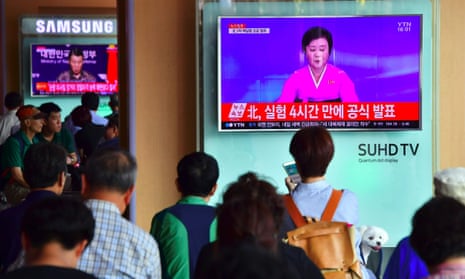The latest nuclear test by North Korea proves that economic sanctions against the regime have failed utterly. So how is the west proposing to react? It is debating how to extend sanctions.
Embargos of increasing ferocity have been imposed on North Korea since 1992. While they were undermined by Beijing, they ostracised Pyongyang from the outside world, effectively freezing any rapprochement with the south. Sanctions are intended to hurt an economy as a lever to induce political change. In North Korea’s case they have driven an embattled regime to prove its worth by doing the opposite, militarising its society and hastening precisely the goal the policy was supposed to halt – the acquisition of high-profile weaponry.
Economic aggression has been waged on states as diverse as Cuba, Iran, Burma, South Africa, Iraq, Serbia, Libya and Syria. In almost all cases they were counterproductive, internally strengthening the deplored regime and its policy. In Iraq, Serbia and Libya their failure was an incitement to violence and war.
Sanctions impoverish the poor, militarise the state and cripple the mercantile middle class from which opposition to a regime might arise. Siege economies are not just barriers to trade, they prevent the cultural and commercial exchange vital to opening up political discourse. When, as in North Korea and Syria, they are obviated by a powerful ally of the regime, they are senseless. Clearly they do not prevent the acquisition of nuclear weapons.
The urge to bully and dominate lesser nations remains a potent force in western diplomacy, as potent since the end of the cold war as it was in the 19th century. Economic sanctions are certainly a preferable form of state-on-state aggression to war. But like those currently imposed on Russia, they do not achieve their purpose. They are feel-good gestures, denying economic prosperity as an ultimate guarantor of peace among nations.
The sanctions so far imposed on North Korea have blatantly not made the far east a safe place. How much more dangerous is moot, since it is inconceivable China would allow North Korea to commit an act of nuclear aggression on the south. The sane alternative is to do everything to open North Korea, to flood it with trade, promote cultural exchange and hope one day that, like east Germany, it will reunite with its neighbour.
This will never happen under sanctions. Ending sanctions cannot cause more harm than what is happening now. It would probably do good. So end the sanctions.

